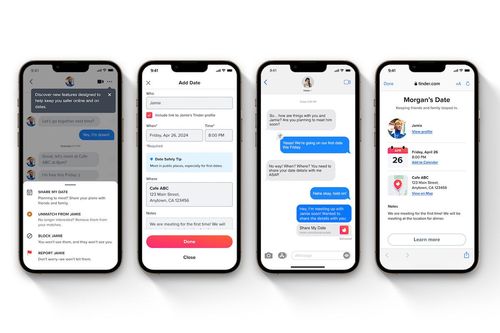Why Meta is looking to the fediverse as the future for social media
Meta explores the fediverse, aiming to integrate Threads, enhance creator economy, and offer moderation tools.

Meta's foray into the fediverse has sparked a mix of curiosity and concern among existing users and developers of federated networks. Through initiatives like integrating Threads with ActivityPub, Meta appears to be positioning itself as a champion of the open social web, offering new opportunities for creators to 'own' their audiences outside the confines of Meta's traditional, ad-driven platforms. Rachel Lambert and Peter Cottle from Meta discussed on the 'Flipboard Dot Social' podcast how joining the fediverse could benefit Threads users by expanding their reach and enabling a more open creator economy, suggesting that Meta's involvement might not solely aim at centralizing control but rather at fostering a more interconnected social media landscape.
Despite these positive overtures, skepticism remains about Meta's long-term intentions, particularly how it might leverage its vast resources to influence the direction and standards of the fediverse, including monetization and moderation practices. Lambert highlighted Meta's commitment to open source projects and the release of features that facilitate integration with the wider fediverse as evidence of its genuine interest in contributing to and coexisting within this new ecosystem. However, the potential for Meta to introduce advertising or subscription-based monetization models to the fediverse, as Cottle hinted, raises questions about how such moves could reshape creator and user experiences.
Overall, Meta's engagement with the fediverse signals a noteworthy shift towards recognizing the value of decentralized social networks, while also hinting at the company's broader strategic interests, such as enhancing its appeal to creators and exerting influence over the evolution of open web protocols. Whether Meta's efforts will lead to a more vibrant and diverse social media landscape or undermine the fediverse's foundational principles remains to be seen, making its progress an important development to watch for anyone interested in the future of online social interaction.
 Why Meta is looking to the fediverse as the future for social media
Why Meta is looking to the fediverse as the future for social media Microsoft’s Surface and Xbox hardware revenues take a big hit in Q3
Microsoft’s Surface and Xbox hardware revenues take a big hit in Q3 Augment, a competitor of GitHub Copilot and backed by Eric Schmidt, emerges from stealth mode with a launch of $252 million
Augment, a competitor of GitHub Copilot and backed by Eric Schmidt, emerges from stealth mode with a launch of $252 million IBM advances further into hybrid cloud management with its $6.4 billion acquisition of HashiCorp
IBM advances further into hybrid cloud management with its $6.4 billion acquisition of HashiCorp Perplexity is raising over $250 million at a valuation of between $2.5 billion and $3 billion for its AI search platform, according to sources.
Perplexity is raising over $250 million at a valuation of between $2.5 billion and $3 billion for its AI search platform, according to sources. Apple announces May 7 event for new iPads
Apple announces May 7 event for new iPads Gurman: iOS 18 AI features to be powered by entirely On-Device LLM, offering privacy and speed benefits
Gurman: iOS 18 AI features to be powered by entirely On-Device LLM, offering privacy and speed benefits Meta aims to become the Microsoft of headsets
Meta aims to become the Microsoft of headsets Tinder introduces a 'Share My Date' feature allowing users to share their date plans with interested friends
Tinder introduces a 'Share My Date' feature allowing users to share their date plans with interested friends This is Tesla's effective solution for the recalled Cybertruck accelerator pedals
This is Tesla's effective solution for the recalled Cybertruck accelerator pedals